Swiss Film Archive inaugurates research centre
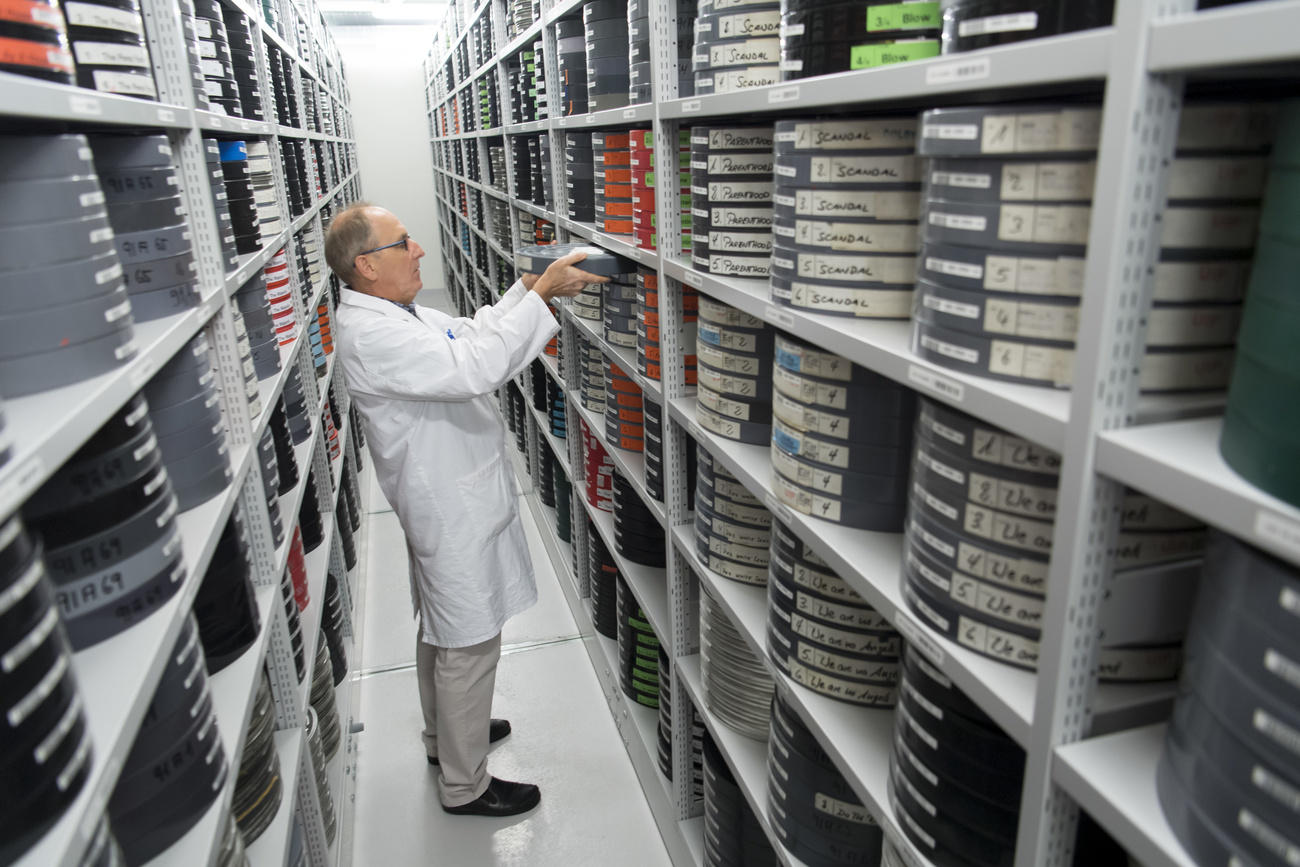
Thousands of old and rare films, books, posters and other cinematic treasures – one of the most important film archives in the world – have found a new home near the city of Lausanne.
Twenty years in the making, the National Film Archive – or CinemathequeExternal link – on Friday inaugurated a modern new research and archive centre at Penthaz in western Switzerland.
“This is an extremely important moment, which has been long awaited,” Cinematheque Director Frédéric Maire told swissinfo.ch.
The CHF50-million ($50 million) centre stores 85,000 film titles, or 700,000 reels, as well as 2.5 million photographs, 500,000 posters, 26,000 books, 2,000 rare film cameras, and other valuable film paraphernalia in its deep vaults, which stretch over an area equivalent to the size of three football pitches. The site also houses a 40-seat cinema, a museum area and conference rooms. It employs around 50 people – from film restoration specialists to IT technicians.
“This is one of the most important collections of film treasures in the world. But what is particularly remarkable, is that it constitutes the memory of Swiss cinema,” said Alain Berset, the minister whose portfolio includes culture, at the inauguration.
The International Federation of Film Archives (FAIF) has also described the Swiss collection as one of the ten most important film archives in the world.
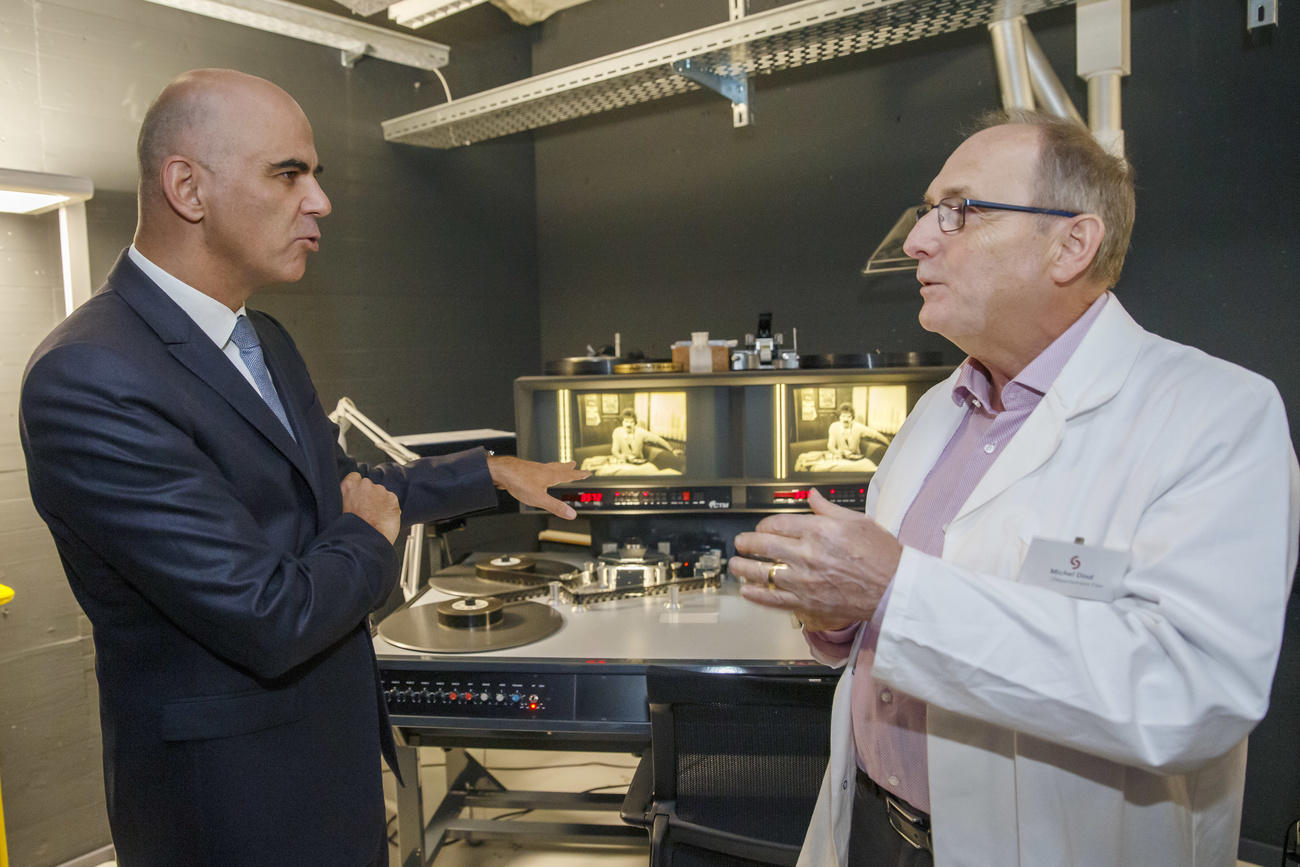
The Cinematheque was officially created in 1948 as post-war interest in movies and film clubs took off in Switzerland. It benefited from this early popularity and as the Swiss market was important to international distributors, it built up a huge archive collection, of which over 50,000 are foreign feature films.
But it also has many thousands of Swiss films and other materials, which it has received from different sources – professional and amateur – that are of immense historic value.
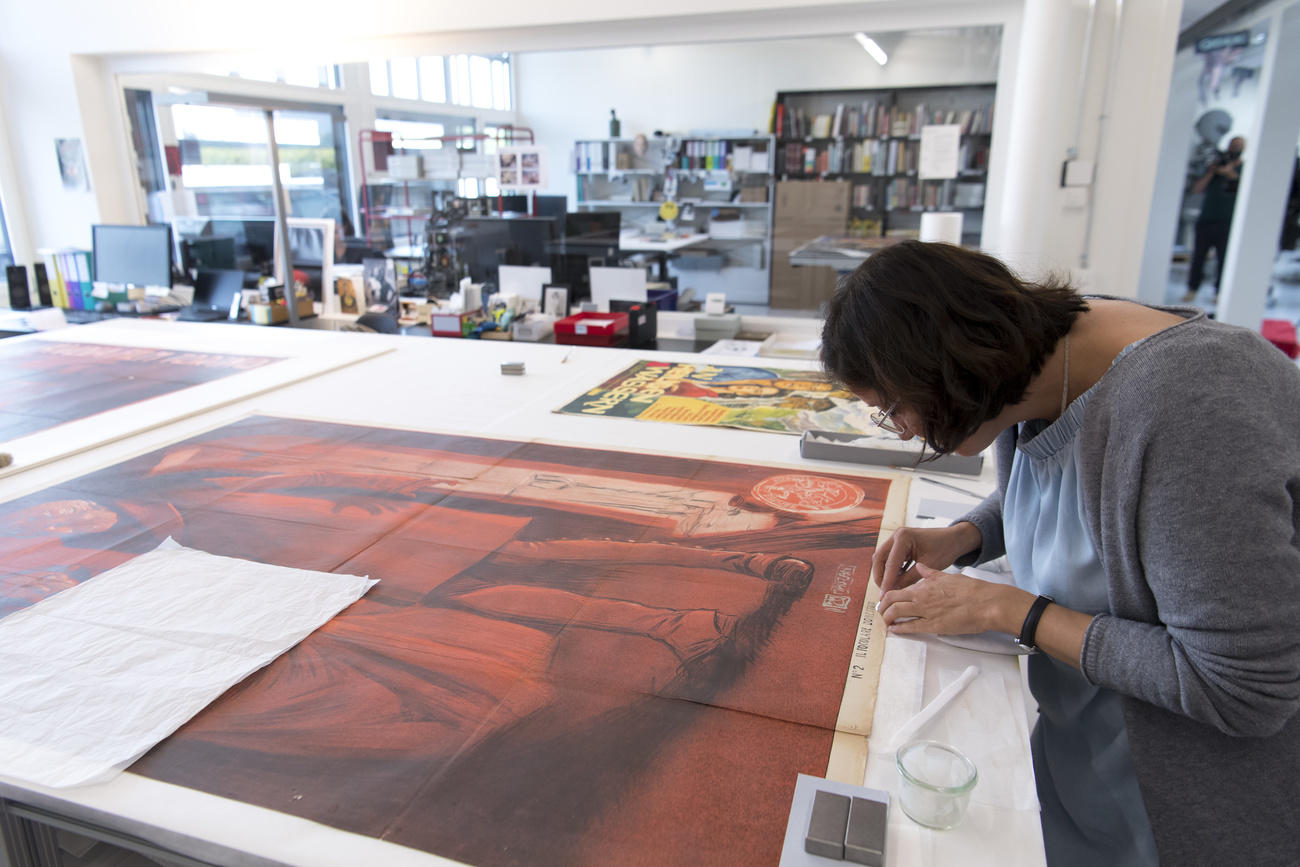
Long process
Bringing the archives together under a new roof has been a long, difficult process. In the 1950s, piles of nitrate film reels and other archives were stored at a stables and in other locations in Lausanne, before being moved to an old nuclear power plant at Lucens. Later in 1988, the influential former director, Freddy Buache, bought a disused bookbinding workshop at Penthaz to rehouse the huge collection he helped amass.
The Swiss government was initially reluctant to put their hands in their pockets to support the archive. But finally, in 1998, on the 50th anniversary of the Cinematheque, it stepped in and purchased the old Penthaz centre and land. A project for a modern new building was conceived in the early 2000s but the first stone was only laid in 2011.
The project was delayed in order to convince the government to fund a digital strategy.
“If we hadn’t done so, we would have remained a 20th-century archive,” said Maire.
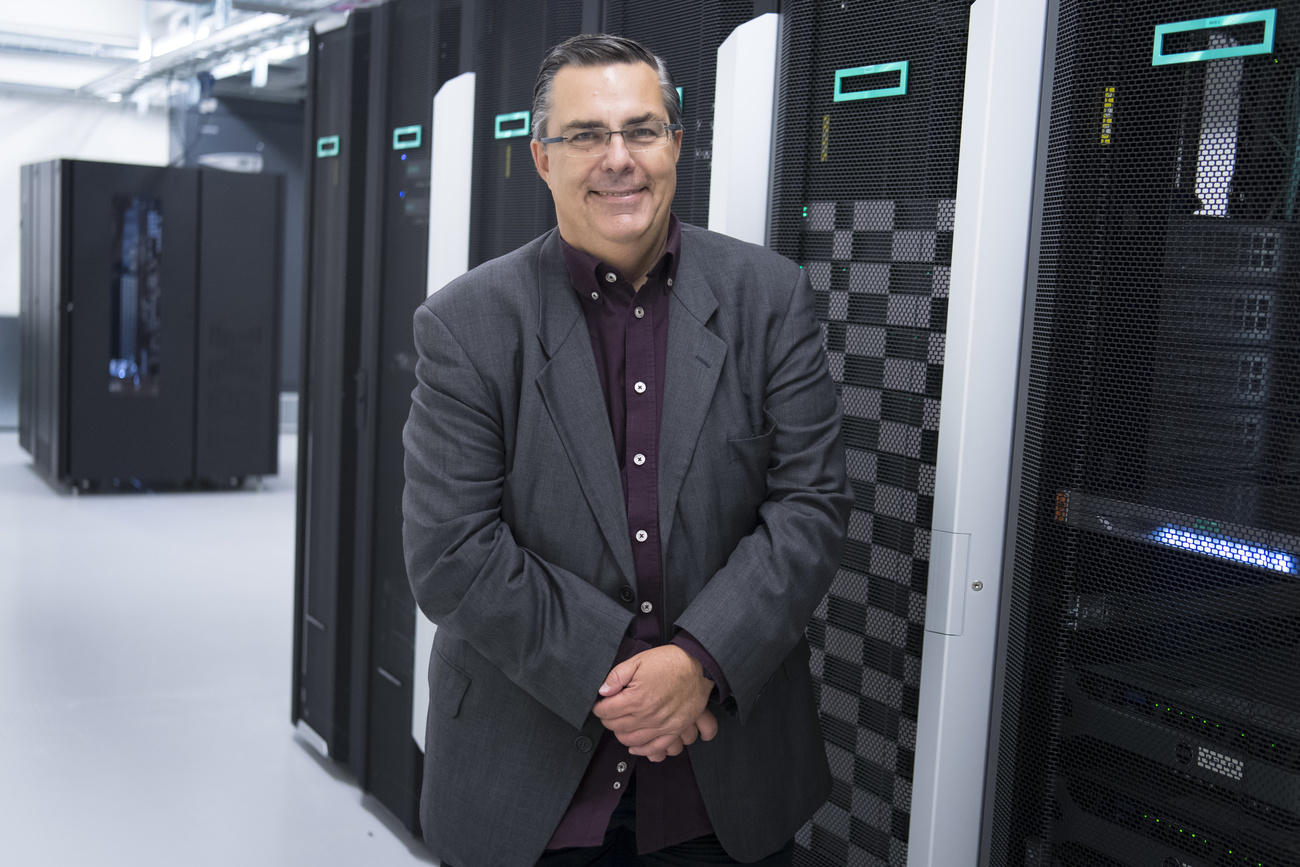
Going digital
Next to rooms where specialists carefully restore old film stock, computers and scanners blast away as part of the digitization strategy. While fewer cinemas are using film reels, the digitization process helps showcase the centre’s valuable classic works, explained Maire.
With regard to preservation, restoration and digitization of films, the Cinematheque gives priority to “Helvetica” – a notion that includes any materials considered to be part of Swiss film heritage.
Every year, it restores around 40 short and six-seven feature films. Next Sunday, during a festival in the German capital, Berlin, for the first time a restored version of La Roue (The Wheel) by Abel Gance will be presented. The restoration was done thanks to a unique copy from the Penthaz archives.
“It’s nice to have all these archives but if we can’t show them it’s pointless. Our mission and main challenge is to conserve and restore, and make them accessible via digitalization,” said Maire.
“And it’s important that one day there is a national online platform, not linked to commercial operators, which allows the public access to Swiss films.”
This weekend, the public will be able to discover the new Penthaz research and archive centre during an open day.
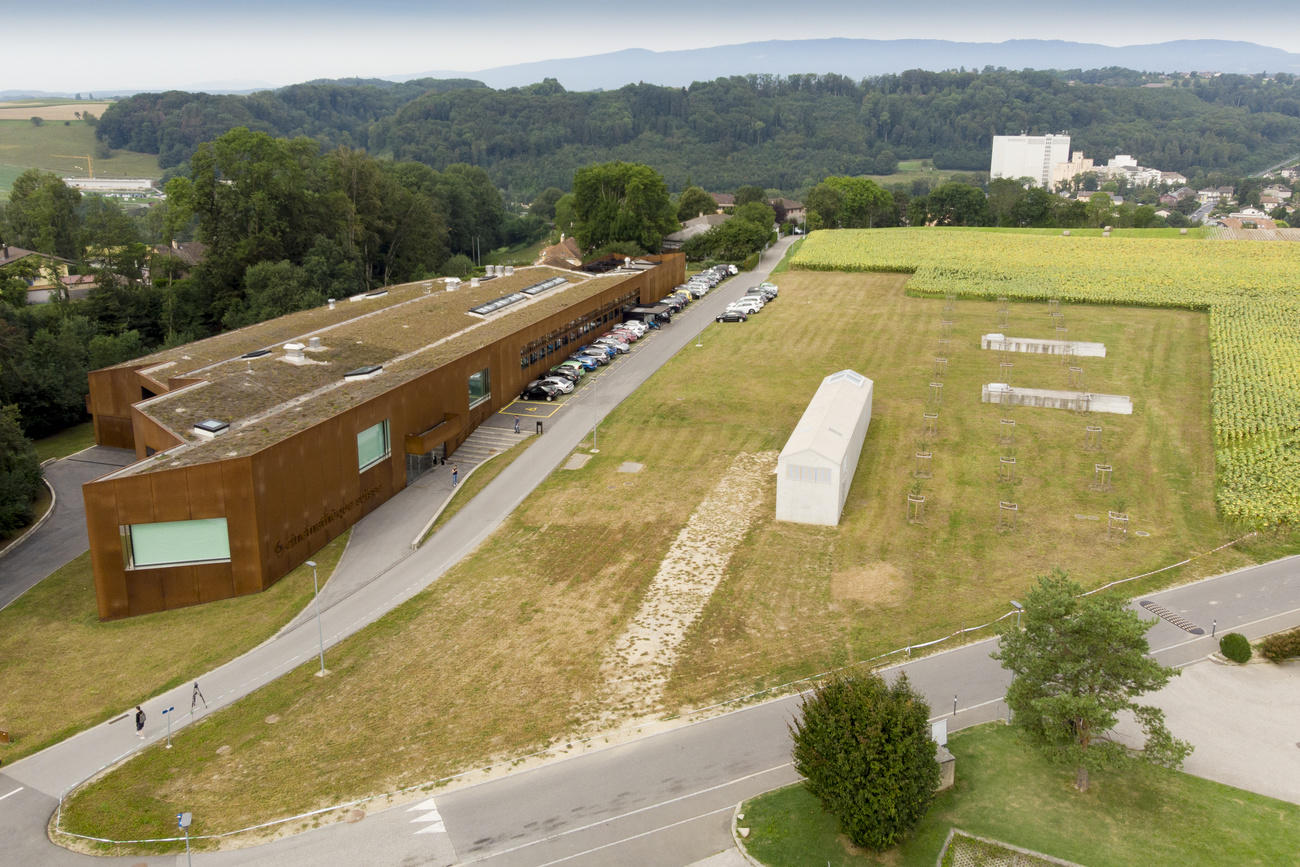

In compliance with the JTI standards
More: SWI swissinfo.ch certified by the Journalism Trust Initiative












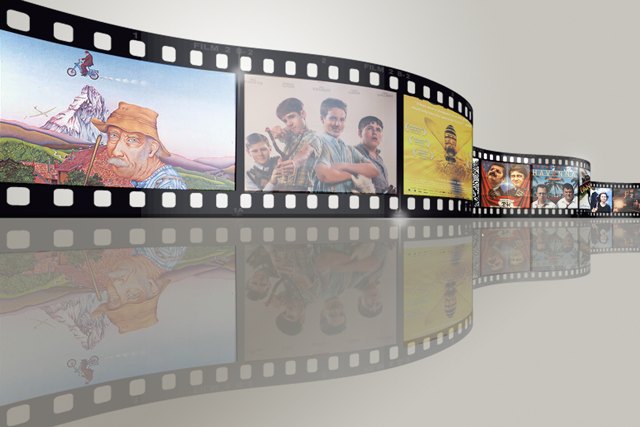
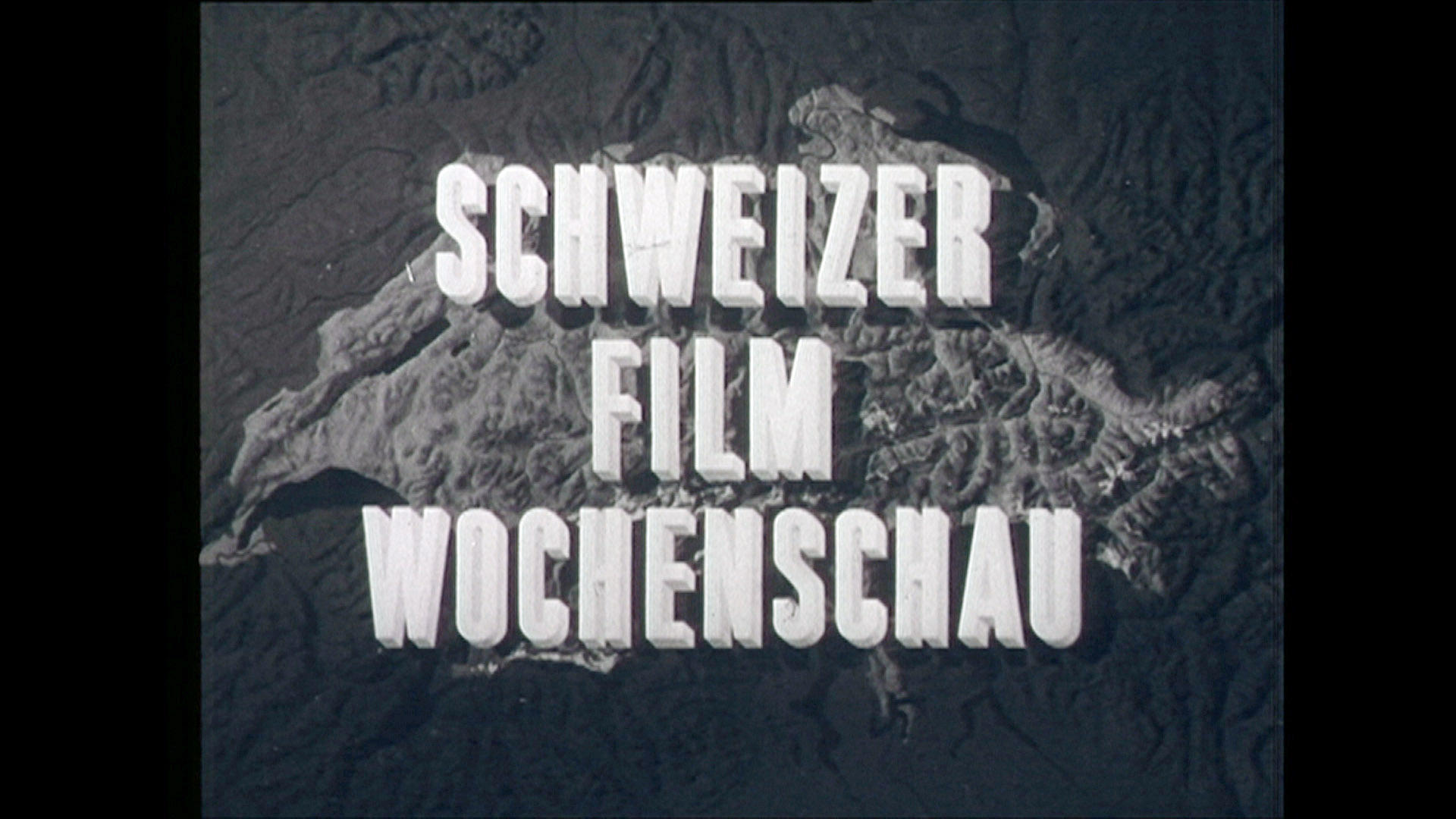
You can find an overview of ongoing debates with our journalists here . Please join us!
If you want to start a conversation about a topic raised in this article or want to report factual errors, email us at english@swissinfo.ch.